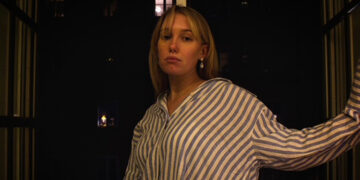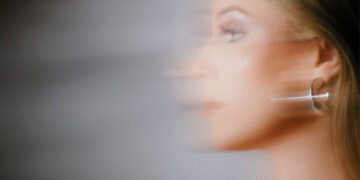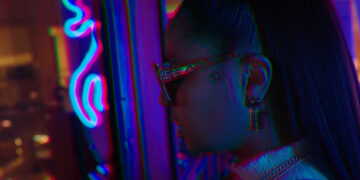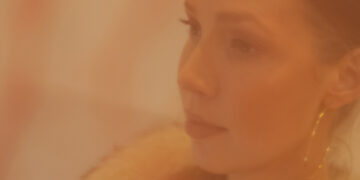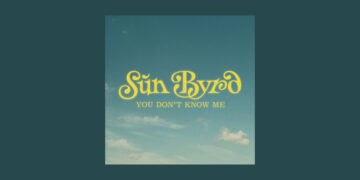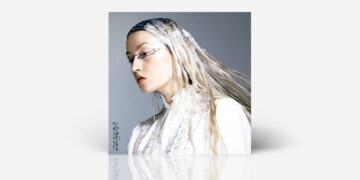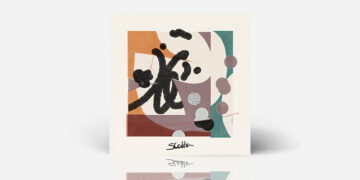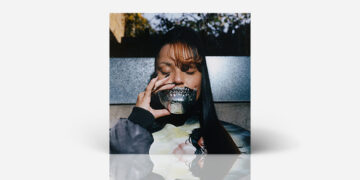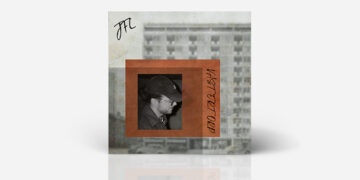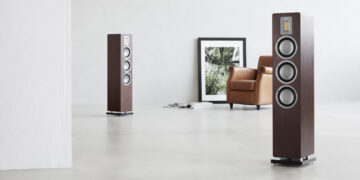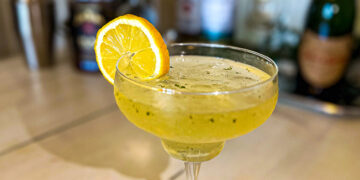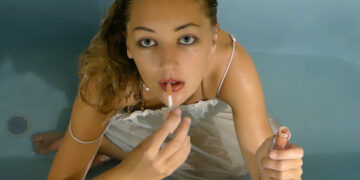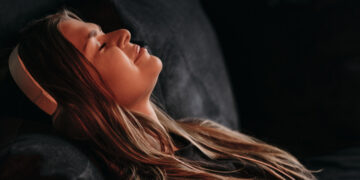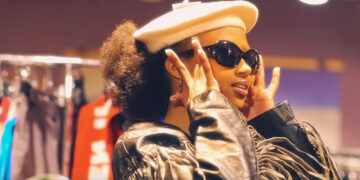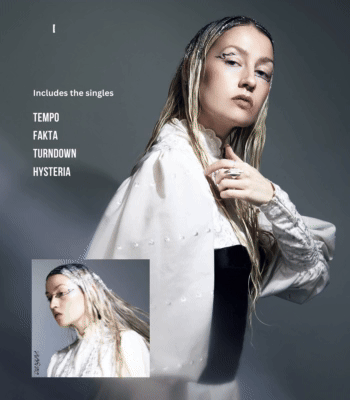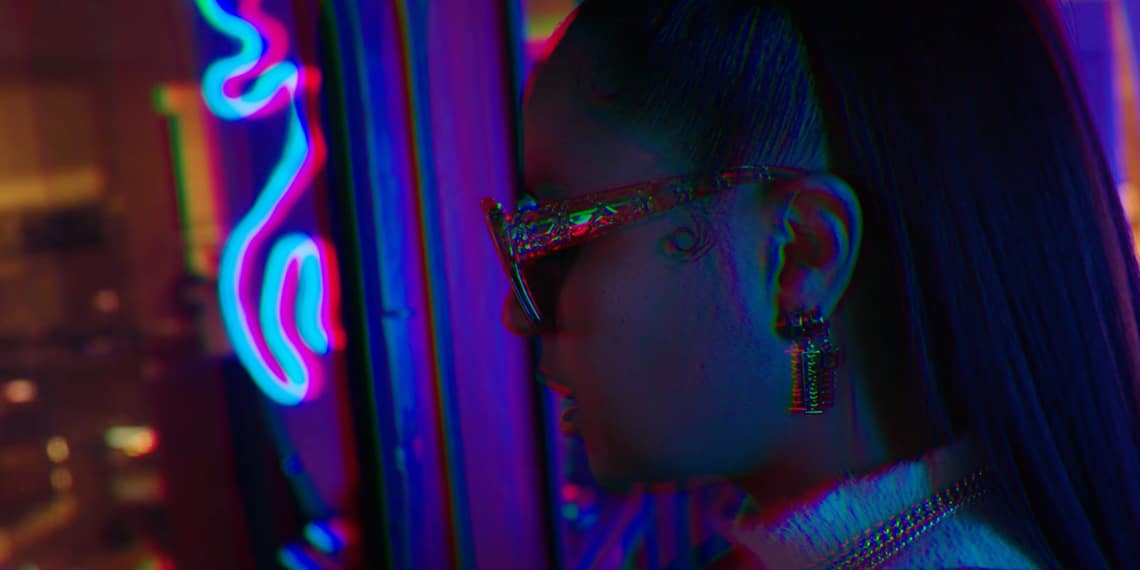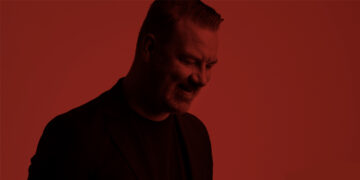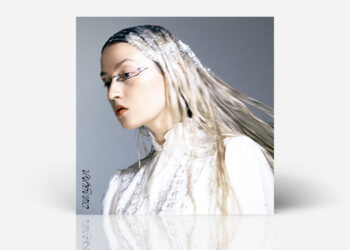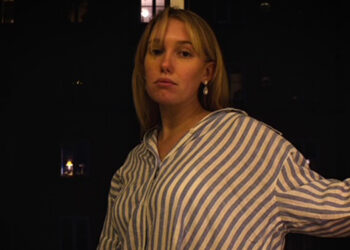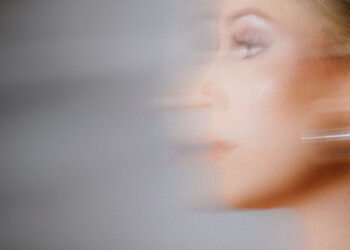No products in the basket.
I wanted it to sound like the feeling of running your hand over silk – Aureola
We spoke to Danish artist Aureola about her new single / Paint Me.
That music can be used to shed light on matters that are important to us has been known for a long time, and it is very much possible to use music as a tool for “being the change you want to see in the world”, as the old saying goes. Danish artist and songwriter Aureola embodies this by using her artistry to advocate for the normalisation of female sexuality and body positivity. This, combined with an angelic voice and exceptional songwriting skills, made her an artist we keep a close eye on. Her latest release was our most liked track of the week on Instagram, so we spoke to Aureola – or Josefine A. Mathiesen, her real name – about her artistry and the new single Paint Me.
Hi Josefine! Thank you so much for taking the time to talk to us – we love your music. How and when did you know you wanted to work with music professionally?
I’ve dreamt of being a singer for about as long as I can remember. Still, I knew I wanted to pursue it professionally when I graduated high school, got my heart broken and processed it by writing and performing my own songs. I played my first show with all those songs in New York, and from there, things started to snowball to a place where I can’t imagine doing anything else now.
You have just released your newest single, Paint Me. How would you describe it?
To me, it’s a soft and sensual song. I guess I wanted it to sound like the feeling of running your hand over silk.
We know that “Paint me” is about your favourite sex toy. What reactions have you gotten with regards to the theme?
Mostly very positive reactions, with a few nervous giggles here and there. I think the only negative response I’ve gotten has been on Facebook, where I tried to run an ad for my release show. I got a notification saying I couldn’t promote it because it violated Facebook’s guideline against “promoting sexual pleasure” because people could win sex toys at the show. I got around it by changing the spelling to “seggs”, but I honestly find it funny that they consider promoting “sexual pleasure” as such a bad thing. Other than that, it’s been positively received, though.

Where and when would you suggest people listen to it?
I mean, it’s really not for me to decide, as long as they listen! However, if I were to paint a picture, I’d love it if people maybe put it on, on vacation somewhere warm and sunny, just waking up from a siesta nap, while the thin white curtains wave softly in the breeze and they either want to spend some quality time with themselves or a partner. Alternatively, maybe as they are getting ready to go out, putting on makeup and perfume, sipping a glass of wine, with the possibility of meeting someone that evening lingering in the air – that’s what I had in mind while writing it, at least.
Speaking of sex positivity and body positivity. It is wonderful to see young artists raise their voices to make a change. How come you chose to do so in this matter?
It might be that old saying that goes, “write what you know”; I think it’s quite natural that something I care about as a person also shows up in my songwriting. With Paint Me I’m not sure how much of a conscious choice it was, as much as something I just felt like writing at the moment. At the core of it, I was just having a lot of fun with the lyrics, pushing my songwriting and myself with them.

You’ve said that “art and humour are our best weapons to combat shame”. Tell us more about that!
Shame is a very lonely feeling for me – something you feel you can’t talk to anyone about and end up carrying alone. On the opposite end of that, I think both art and humour can open up a space to feel recognised, like, “oh, I’m not the only person feeling or thinking like this”. Put simply, I think both art and humour shine a light on things that might otherwise be in the dark. I know I haven’t always felt as at ease with my own sexuality as I do now, so writing “Paint Me” and specifically the line “we got the sheets so soaking wet / I guess you could call it a waterbed” was a way to own it – and it’s coincidentally the line I’ve gotten the most laughs and responses to.
Do you have any particular musical role models? Who and why?
One of my biggest heroes is Nina Simone. She’s an artist I always go back to, no matter what I’m going through. I also admire someone like Dolly Parton for her humour, songwriting and business savvy, and I’m in awe of Yebba’s vocals. But at the end of the day, I always go back to Nina Simone. Her voice is comforting and intense, like a shot of espresso or whisky, depending on the mood.
Any- and everything can inspire a song – like a vibrator!
What inspires you to write songs?
Any- and everything can inspire a song – like a vibrator! Still, the key to inspiration for me is emotion. I find it so much easier to write when I know what emotion I’m tapping into. I don’t need to be totally wrapped up in what I’m writing about emotionally, but knowing the feeling I’m connecting to, makes it easier to write. My theory is that it makes it easier to relate to when listening too.
What do you enjoy the most about being an artist?
I think it’s what I call the magic of turning an experience into music – the worst things in life can make for the best songs. And performing! Being on stage singing something I wrote, and feeling it resonate with the audience, is just the best high in the world. There are, of course, some shows where it’s easier to connect like that than others, but I’ve honestly never met a stage I didn’t like.
What is the next step for Aureola?
Right now, I’m just going to enjoy the summer for a while, and then I have shows coming up again in August, which I’m really looking forward to!

